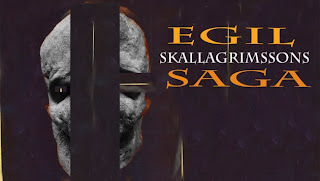Why Icelandic sagas are like Richard Stark's Parker
I read Egil's Saga in a translation by the late Bernard Scudder, the much respected translator of Yrsa Sigurðardóttir and Arnaldur Indriðason, and the bracing informality of his version makes it lot more readable than one might suspect from the witty aura of airbrushed sword-and-sorcery fantasy balderdash that surrounds the idea of Vikings. Two favorite examples:
"As he grew up, it soon became clear he would turn out very ugly and resemble his father ... " (and that's the hero of the story.)and
"Helga replied, ‘Even though you are so stupid that you cannot look after yourself, I will bring it about that this duel never takes place.’"That's another thing about the sagas: the protagonists are men, but the women could inherit property, talk tough, and kick ass in a way I'm not sure was common in other 13th-century European literature. Maybe that brisk directness is a feature of the original Old Norse, but if that's the case, Scudder wisely highlights it. No wifty swords and sorcery here.
And you want stories that cross borders? Egil's Saga is set in Iceland, Norway, England, Scotland, Lapland, Finland, around the Baltic Sea, and Eastern Europe, with additional mentions of journeys to France and Ireland (the Vikings founded Dublin and other Irish cities, after all.)
© Peter Rozovsky 2014
Labels: Bernard Scudder, Donald Westlake, Egil's Saga, Iceland, Icelandic sagas, Parker, Richard Stark







